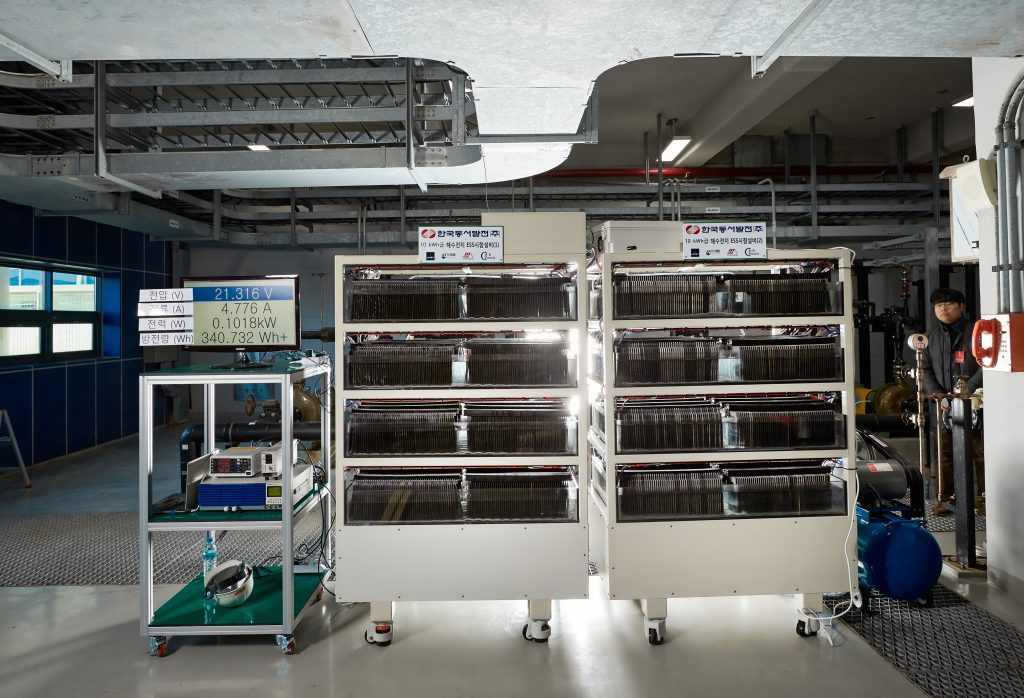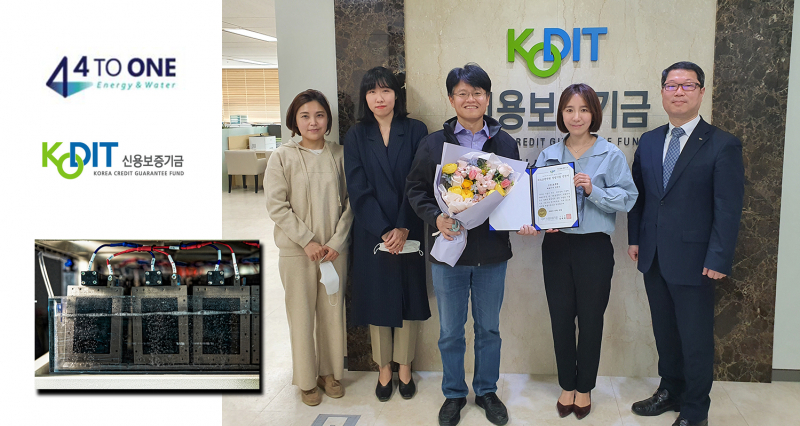4 To One Co., Ltd., a UNIST faculty startup company has been selected as the ‘First Penguin Business’ by the Korea Credit Gurantee Fund (KODIT). Led by Professor Youngsik Kim in the School of Energy and Chemical Engineering at UNIST, the company will receive KRW 1.5 billion in funding over the next three years. The certification ceremony took place on April 22, 2020.
The First Penguin Business program by KODIT is the credit guarantee system, which provides supports for high-potential growth companies with excellent ideas and technologies. The program selects innovative startup companies that are 5-year-old or younger, and thus help them pioneer new growths and grow as global leaders.
Established in 2015, 4 To One Co., Ltd. is at the forefront of the commercialization of seawater battery source technology, possessed by Professor Kim. The company, currently, is manufacturing and selling test kits for the development of seawater batteries. It is also working to promote the commercialization of products applicable to seawater batteries.

In December 2018, researchers have successfully completed the ESS testng, utilizing seawater batteries at the Korea East-West Power.
Seawater batteries use sodium ion from the seawater to store and generate electricity. What’s more, their use of cheap and abundant sodium instead of expensive lithium allows them to be price competitive with their lithium-ion cousins. Moreover, the use of seawater can also considerably reduce fire risks, as it keeps the thermal fluid in good condition. The battery, capable of desalinating seawater during the charge and discharge processes, also has additional functions, such as hydrogen production and carbon capture. This makes it highly likely to be used in various applications in the marine environment.
4 To One Co., Ltd. seeks to promote the development of various commercial products to be applied for seawater batteries in the marine environment. A representative example is ‘Smart Fishing Light Buoy,’ which uses UNIST’s seawater battery technology as power source. It can be charged through the solar panels during the day to provide the GPS location information and temperature information of the fishery. In addition, it can be used for life jackets that can operate and automatically send the alarm signal during flooding.






![[2026 UNIST Matriculation] “Design Questions the World Has Never Seen!”](https://news.unist.ac.kr/wp-content/uploads/2026/02/사진-박종래-UNIST-총장이-2026년-입학식사를-전하고-있다-1-1-190x122.jpg)
![[2026 UNIST Commencement] “Become Way Makers Who Open Paths Where None Are Drawn!”](https://news.unist.ac.kr/wp-content/uploads/2026/02/사진-박종래-총장이-UNIST-학위수여식사를-전하고-있다-3-1-190x122.jpg)
![[2026 UNIST Commencement] Voices of Class of 2026](https://news.unist.ac.kr/wp-content/uploads/2026/02/Untitled1-190x122.jpg)



